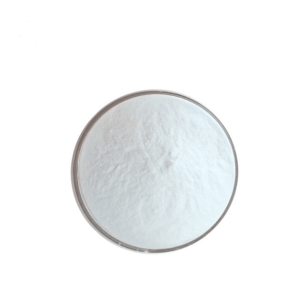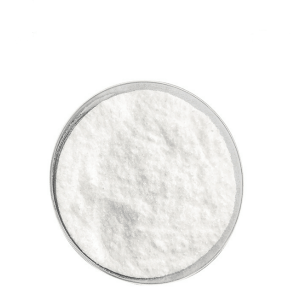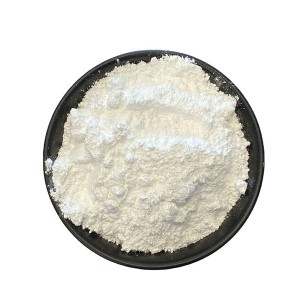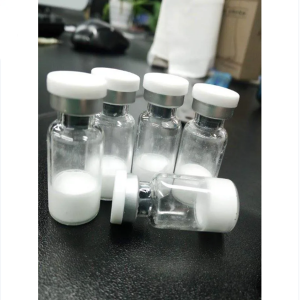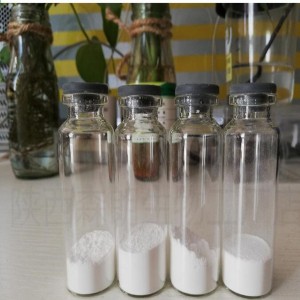Nonapeptide-1 CAS:158563-45-2
Product Detail
Name: Nonapeptide-1
CAS: 158563-45-2
Feature:
Nonapeptide-1, also known as whitening peptide, is a whitening nonapeptide containing nine amino acids. It is mainly used for whitening and brightening the skin and removing spots. Competitively blocking the entrance of receptors and various factor signals on melanocytes weakens the activity of melanocytes and reduces melanin production. Nonapeptide-1 is a kind of biomimetic peptide, it has a very good match with MC1 receptor, so it can be used as an antagonist of melanocyte-stimulating hormone, and competitively bind to MC1 receptor. Therefore, it can prevent the tyrosinase from being further activated and the resulting melanin production.
Nonapeptide-1 has the following applications/functions:
Inhibit melanin
Nonapeptide-1 is a biomimetic peptide. It has a very good match with MC1 receptors on melanocytes. Therefore, it can be used as an antagonist of melanocyte-stimulating hormone, which competitively binds to MC1 receptors to prevent tyrosine The enzyme is further activated to produce melanin. Nonapeptide-1 competitively blocks the entrance of receptors on melanocytes and various factor signals, weakens the activity of melanocytes, reduces the amount of melanin production, and has the effect of evening and brightening the skin. The synthesis process of melanin is quite complicated. , Is a multi-step enzymatic biochemical reaction. First, after the melanocytes in the skin take up tyrosine, it is oxidized to (3,4-dihydroxyphenylalanine) under the action of tyrosinase containing copper ions, and then oxidized to dopaquinone. Dopaquinone quickly becomes dopachrome through intramolecular cyclization, and dopachrome undergoes intramolecular rearrangement. Tyrosinase is a key enzyme for melanin synthesis, and its quantity and activity are related to the rate of melanin synthesis. Melanocyte-stimulating hormone has a wide range of stimulating effects on melanocytes, which can stimulate the division and proliferation of melanocytes, promote the expression of melanocyte tyrosinase, increase the activity of tyrosinase, and increase the biosynthesis of melanin. Melanocortin-1 receptor is expressed in almost all types of skin cells, among which Z is highly expressed in skin melanocytes and keratinocytes. MC-1R is a G protein-coupled receptor with 7 transmembrane regions. It has a high and similar affinity with MSH-α and ACTH. The melanogenesis effect of MC-1R is to increase the level of cyclic adenosine monophosphate through adenylate cyclase after combining with MSH-α and ACTH, thereby enhancing the activity of tyrosinase and stimulating the differentiation of melanocytes. Proliferate and promote melanin synthesis. At the same time MC-1R plays a controlling role in regulating skin pigmentation.
MSH-α must be combined with MC-1R to be effective. The chemical structure of nonapeptide-1 also has a good affinity with MC-1R. It can preemptively bind to MC-1R on melanocytes, prevent MSH-α from binding to MC-1R, and avoid melanocytes. The stimulating effect of hormones on melanocytes reduces the activity of tyrosinase and reduces the production of melanin from the inside of the cells, thereby whitening and brightening the skin.
Composition:
Appearance: White powder
Assay: 98%
Packing: 25kg/drum or as discussed
Shelf Life: 2 years
Storage: Store in cool and dry area
Certification:ISO GMP KOSHER HALAL

